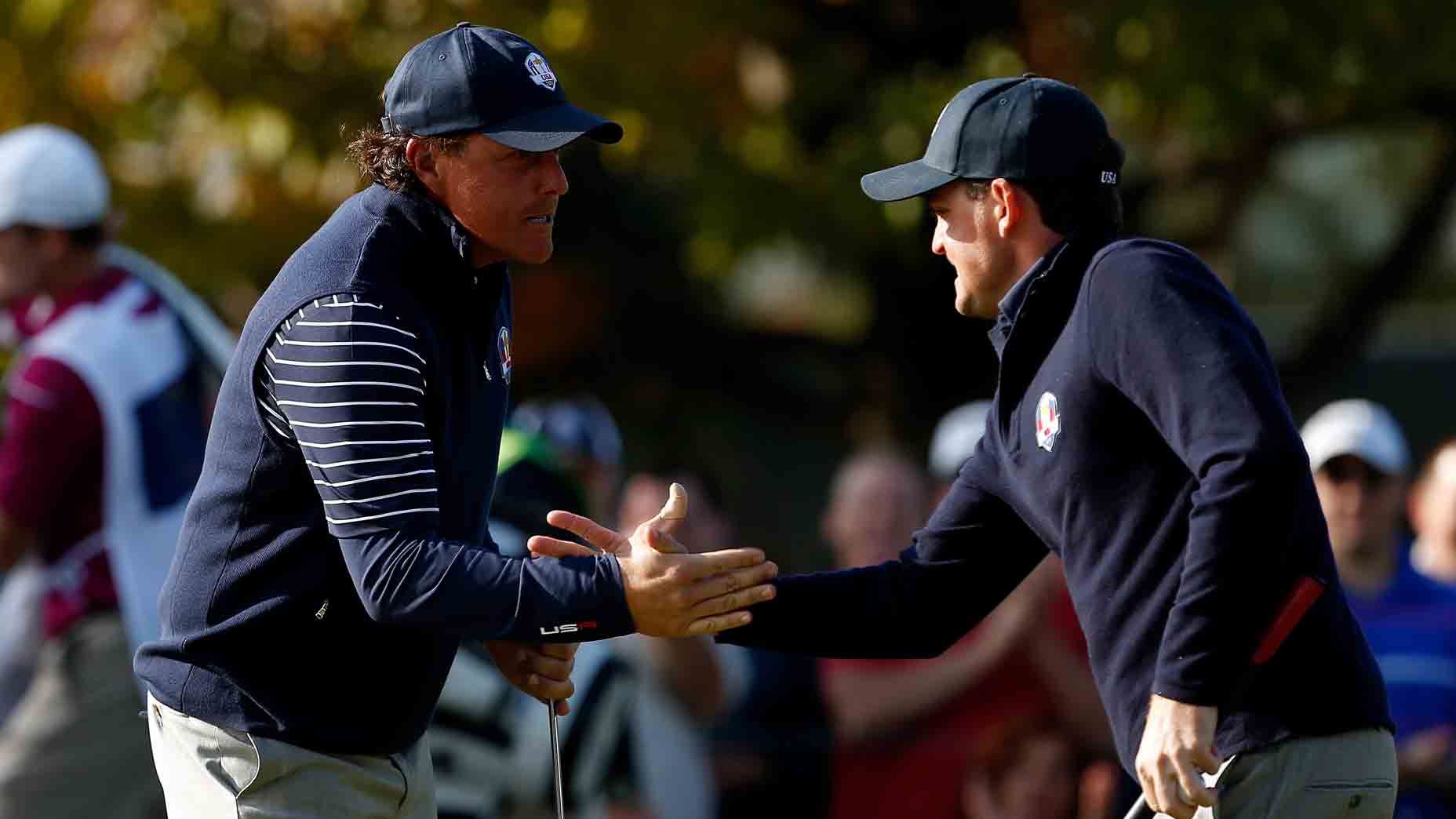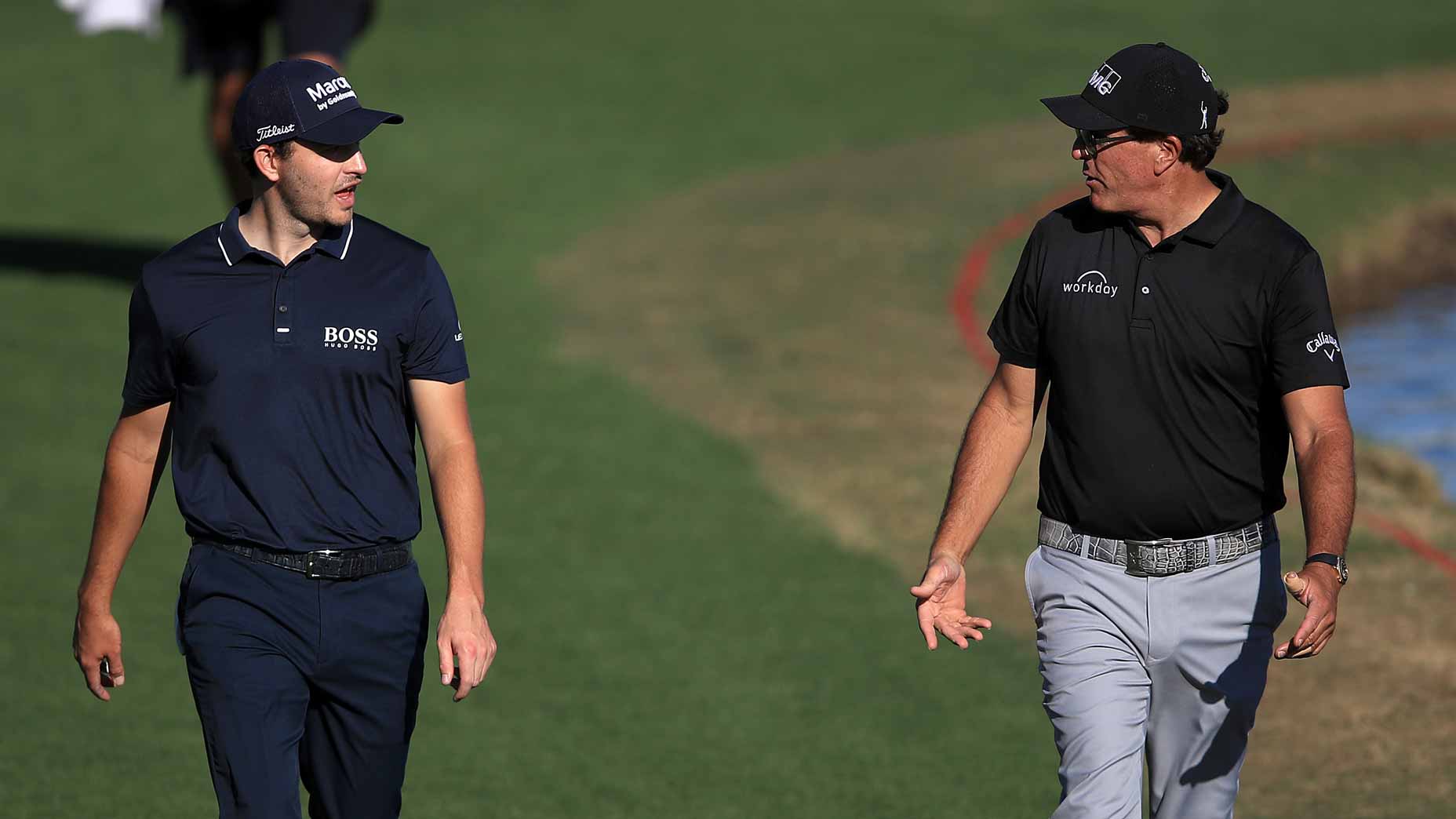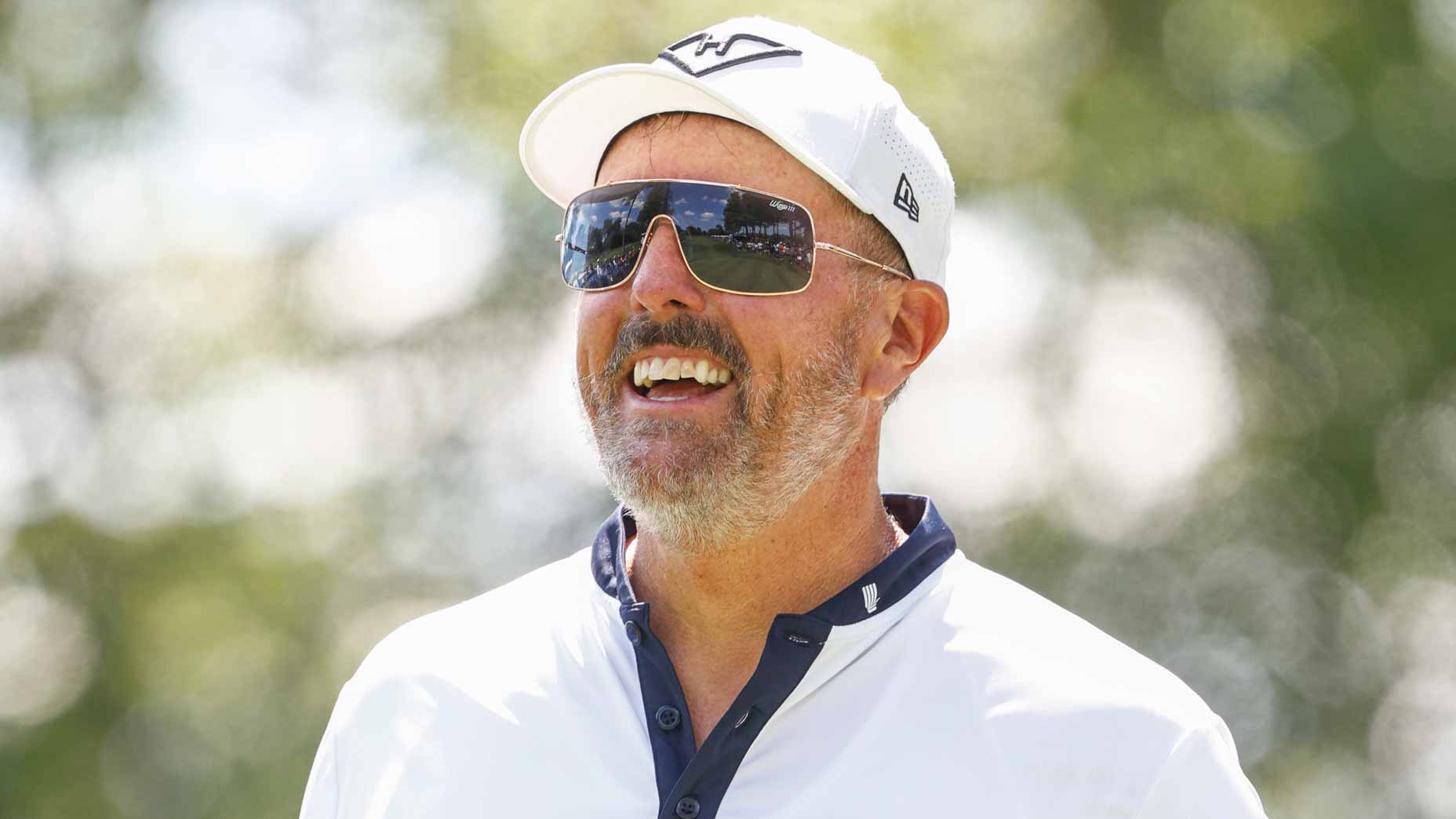Phil Mickelson took to social media on Monday to open up on his gambling addiction but also warn others of the damage it can cause.
Mickelson, in identical posts to both his Twitter and Instagram, said he won’t bet on football this season since he had previously crossed the line of moderation and into addiction.
The six-time major champion’s post was 412-words long, and in it he explained how his addiction spiraled out of control, the importance of a strong support system and the crucial role his wife, Amy, played to help him.
Mickelson has long held a reputation as a big-time sports gambler, but it wasn’t until recently when numbers started to swirl about how much he was allegedly gambling.
Last year, Alan Shipnuck’s biography on Mickelson reported he had lost more than $40 million gambling from 2010-14. A month after that excerpt was published, Mickelson told Sports Illustrated his gambling became “reckless and embarrassing.”
“It affected those I care about in ways I wasn’t aware or could fully understand,” Mickelson said in his post on Monday. “It’s like a hurricane is going on outside and I’m isolated in a shelter oblivious to what was happening. When I came out there was so much damage to clean up that I just wanted to go back inside and not deal with it.”
But the most recent, and perhaps shocking, news tied to Mickelson’s gambling came last month. An excerpt from Billy Walters’ new book “Gambler: Secrets from a Life at Risk” published on Golf Digest, Walters, a former gambling partner of Mickelson’s, alleged the three-time Masters winner lost close to $100 million and bet over $1 billion over the last 30 years.
‘He’d be gambling in a ditch’: Major champ rips Phil Mickelson over LIVBy: Kevin Cunningham
Walters also alleged that Mickelson tried to place a $400,000 bet on the U.S. team to win the 2012 Ryder Cup, which Mickelson was a member of. (Mickelson took to Twitter to say he “never bet on the Ryder Cup.”)
While Mickelson didn’t name Walters in his post on Monday, he did say it’s important to never “confuse your enablers as friends like I did.”
“Hopefully you won’t have to deal with these difficult moments publicly so others can profit off you like I have,” he wrote. “But hopefully you WILL have a strong and supportive partner who is willing to help you through being your worst self, and through your worst moments like I have in Amy. She has loved me and supported me through my darkest and most difficult times. I couldn’t have gotten through this without her. I’m so grateful for her strength in helping us get through the many challenges I’ve created for us. Because of her love, support, and commitment, I’m back on track to being the person I want to be.”
“After many years of receiving professional help, not gambling, and being in recovery from my addictions, I’m now able to sit still, be present in the moment and live each day with an inner calm and peace,” he continued. “I still have a lot of cleaning up to do with those I love the most but I’m doing it slowly and as best I can. This football season and beyond, enjoy yourself with moderation so it doesn’t detract from your ability to be present. In my experience, the moments with the ones you love will be far more remembered than any bet you win or fantasy league triumph.”
You can read Mickelson’s complete post below.
Most of you will enjoy this football season with moderation while having lots of fun and entertainment. The fantasy leagues will provide banter amongst friends and money won or lost betting won’t affect you. I wont be betting this year because I crossed the line of moderation and…
— Phil Mickelson (@PhilMickelson) September 18, 2023










